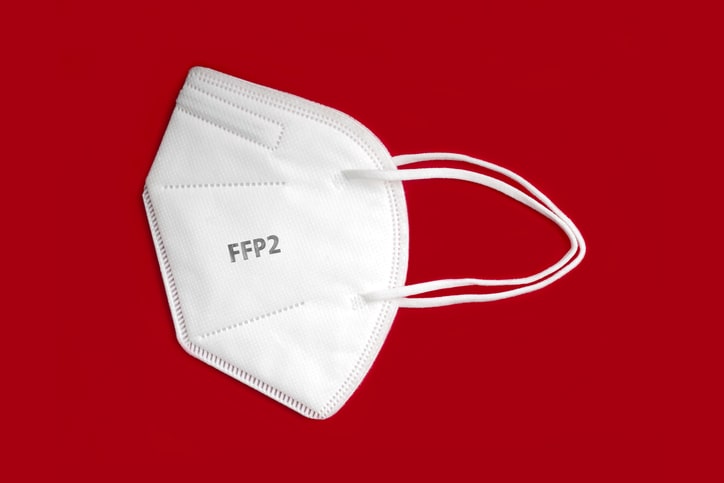Dr. Joseph Vassalotti, Chief Medical Officer, National Kidney Foundation, Discusses Partnership to Help Americans Prevent Kidney Disease
By Rob Dillard - Last Updated: April 28, 2023DocWire News recently spoke with Joseph Vassalotti, MD, Chief Medical Officer of the National Kidney Foundation, to discuss a recent partnership with Healthy.io, the category creater of smartphone urinalysis, to offer free at-home testing to Americans at-risk for kidney disease.
See what Dr. Vassalotti had to say.
DocWire News: Now, the National Kidney Foundation recently partnered with Healthy.io. Can you talk to us a little bit about who they are, what this partnership is about, and the significance of this partnership?
Dr. Vassalotti: This partnership really is about understanding that there are people with kidney disease and people at risk for kidney disease, and the National Kidney Foundation has a risk campaign that is targeted to people with conditions like diabetes to help them understand that they need to partner with their clinicians for blood and urine testing to find out if they have kidney disease.
The blood and urine testing will also tell them if they have kidney disease, how severe it is, and help them work with their clinicians to determine the best treatments, which may involve medications, and also the best ways that they can become engaged in their care with lifestyle changes, maybe with diet and physical activity, and also to understand what kind of targets they need for their diabetes, how to control their diabetes, to help reduce the risk of worsening kidney disease and other diabetes complications.
DocWire News: How prevalent is kidney disease in the US?
Dr. Vassalotti: Well, according to the CDC, about 15% of the US population, or 37 million American adults, have chronic kidney disease, and diabetes is the most common cause (of death) in the United States.
DocWire News: How important is early diagnosis?
Dr. Vassalotti: Well, there’s a much larger population, it’s been estimated one in three Americans is at risk for kidney disease, with conditions like diabetes and high blood pressure, obesity, cardiovascular disease, and also a family history of kidney disease. So, kidney disease can run in families, so it’s important to talk to your family about health history and particularly kidney disease.
DocWire News: Can you talk to us about the uACR (urine albumin-to-creatine ration) test? Where can people go to access the Kidney Risk Assessment Quiz?
Dr. Vassalotti: The Kidney Risk Assessment Quiz is available on the National Kidney Foundation website. If you go to the main page, it’s kidney.org, that is available to you, and there’s a very simple quiz. It’s just a number of questions about your health status, with things like the risk conditions I mentioned before, particularly diabetes, to see if you’re at risk, and then also to partner with your clinicians for testing.
The Healthy.io product is a type of urine testing that can be offered to a patient with a clinician or can be offered in the patient’s home. So, it’s a convenient way to do one of the tests for kidney disease, and that’s the urine albumin-to-creatinine ratio, like you said. It’s a urine test. It’s a test of kidney damage, and there’s another test that we call a test of kidney function that comes from the blood, and that’s the estimated GFR.
DocWire News: Closing thoughts?
Dr. Vassalotti: Well, for primary care clinicians it’s so important to test individuals with the risk conditions. Diabetes, I think, is the most important one that I’ve mentioned several times today. Do your patients with diabetes have these tests annually, the estimated GFR and the urine albumin-to-creatinine ratio? Are you acting on those tests so that those test results should help you inform how you control the blood pressure, how you control the diabetes? If patients have elevated albumin in the urine, that’s a sign that they will benefit from ACE inhibitors and angiotensin receptor blockers for blood pressure control. That’s also a sign, if they have diabetes, that they may benefit from a new class of medicines called SGLT2 inhibitors or flozins.
These are kidney and cardio-protective, so we should certainly encourage use of those. If the patient has a high level of albumin in the urine, there may be another condition going on and you may want to consult with a nephrologist. You may want to consult with a dietician. You may want to consult with a pharmacist to help you manage your patient. And, of course, the level of kidney function by the estimated GFR is important for you to think about what kind of interventions you apply and also when to refer to a nephrologist. In general, the opinion-based recommendation is that when the estimated GFR is less than 30, a nephrologist should be consulted. And that would also follow care coordination so that you work with a nephrologist to determine what stays in the primary care space and what the nephrologist will address.







 © 2025 Mashup Media, LLC, a Formedics Property. All Rights Reserved.
© 2025 Mashup Media, LLC, a Formedics Property. All Rights Reserved.